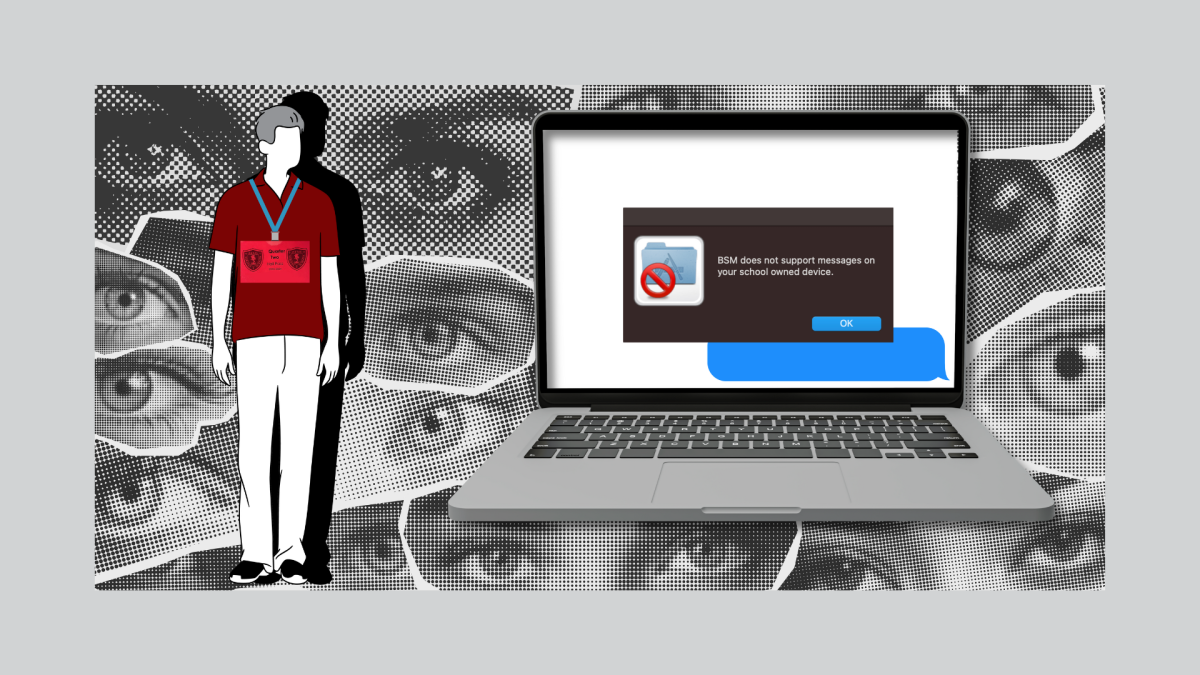Many policies have been re-introduced since COVID-19 to keep students in check such as the implementation of hall passes and hall monitors and the removal of free hours for 9th and 10th grade students. The majority of these mandated policies are better utilized in middle school than in high school and will vanish when students enter their next stage in life: college.
One over-the-top policy is hall passes. BSM created new passes this year that are all identical and students have to wear them around their necks when they are being used. The new passes take away the fun hall passes that teachers used to have. Students should be trusted walking in the hallways in high school without a pass similar to what they will be trusted to do in college. Hall passes at this stage in our academic career are just simply unnecessary.
Additionally, the hall passes require hall monitors to make sure students are carrying the passes. Oftentimes students feel imprisoned under heavy surveillance when they are only trying to use the bathroom or get something from their locker. Conversely, colleges don’t implement this Big Brother-like system.
The most common use of a hall pass is to use the restroom. Bathroom usage seems to be an issue of concern among some faculty members and administrators. Some teachers have a policy that only allows students to use the bathroom a certain amount of times in a semester, offering extra credit for those who don’t use all of their passes. Tying the regulation of bodily functions to academic merit emphasizes the wrong values. When teachers put a limit on the bathroom, it is distracting to the students. They focus more on using the bathroom rather than the material being taught.
Another new policy implemented in the past two years is freshmen and sophomores monitored study halls. Instead of having a free hour where they could learn to manage their time, they are stuck in designated classrooms and forced to study and do their homework. This again is not in line with the notion of preparing students for college. BSM should be fostering an environment that promotes time management skill development and not “handholding” students by caging them in a classroom. If they don’t learn time management skills in high school, how will they stay afloat in college?
Furthermore, if a student has a D or F in a class, they are sent to a study hall instead of having a free hour. When students go off to college, they alone are responsible for their grades. While we appreciate the school’s efforts to help students raise their grades, there has to be a give-and-take. BSM needs to provide support, but students also need to learn to ask for help on their own. While teachers should continue to engage their students who are struggling to understand what they need help with, students should have an opportunity to develop self-regulation and study skills.
Two additional policies that also do not support or encourage the college prep motto are communication and technology. BSM does not communicate policies with students directly, opting instead to send things to parents. However; in college, students will have to learn and know the expectations and policies. Sending emails only to parents is ineffective, limiting transparency, and reducing student’s ability to be informed. Students should be the first line of communication on policies impacting their daily lives.
Technology is the final issue that needs to be further addressed. The laptops that BSM gives to students have many censorship rules. The school tends to block certain applications, games, and websites. Most of the censorship is intended to ban inappropriate sites and distracting games, but now includes the removal of text messaging. Students have already managed to find new ways to internally communicate so as to minimize the impacts of these limitations. While it is understood that BSM has the right to block certain websites, the KE editorial staff along with the perceived majority of students feel that there are certain applications that should be permitted. Students will have these available to them in college and should be given access to foster time management skill development with moderate oversight.
While the KE editorial staff and students believe many of the behavior policies are unnecessary, we do applaud some of BSM’s college-prep resources, which we will cover in an upcoming Staff Ed.
Many of the policies identified do not promote the development and learning of time management, self-control, study habits, and similar skills needed to succeed when we head off to college. Additionally, students need to be offered an opportunity to earn and have the trust of the administration. Policies should be tailored to provide more autonomy based on the ability of the majority to work within the guidelines rather than designed to regulate the minority.
The administration should presume that the majority of students will follow the rules and subsequently design and implement policies for the majority, not the minority. If issues arise with a minority of the students, then BSM should focus its energy on identifying those individuals and addressing their inability to conform rather than implementing a broad “one size fits all” policy. It is believed that the establishment of policies that support and allow for student’s autonomy would foster a higher level of respect between students and administration, promote self-management skill development, and better prepare students for college.









































